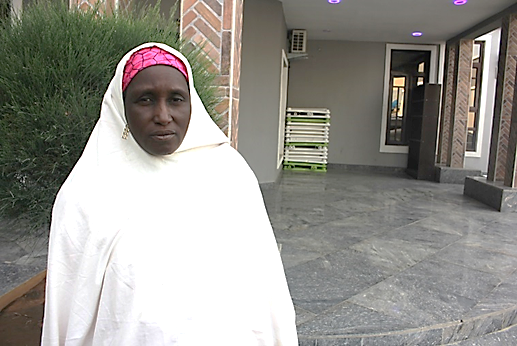Improving women’s access to formal and informal judicial systems to End Gender Based Violence in North East Nigeria
Date:

“Life in the camps can be challenging, especially when you do not know when the Non-State Armed group (NSAG) will strike next”. These are the words of Rabbi Mamman, a 42-year-old mother of five, who lives in Bade in Yobe State, North East Nigeria.” I have children and am constantly worried about them”.
“The attacks on our communities by the Non State Armed Groups have posed a huge challenge on our people. Farmlands have been destroyed leaving behind no seedlings that can be replanted. The burden now is on the shoulders of the traditional leaders to feed and cater for the greater percentage of the people, mostly women and children. In the past, the people donated farm proceeds to the traditional leaders, but that is no longer possible, due to the activities of the NSAG” said Abba Kawu Shehu Abubakar, District Head of Mafa LGA
“I have experienced violence in my home, and I did not know I could report such matters to the police or even talk about it’.
According to UNOCHA, In North East Nigeria, pre-existing gender inequalities resulting from unequal access to opportunities have contributed to the limited access to resources and skills among women and girls, which have in turn increased their vulnerability and exposure to abuse, including sexual exploitation. Those in inaccessible areas lack access to food, supplies and services, are at high risk of experiencing abuse, and are not able to engage in their normal livelihood activities such as farming and trade due to restricted movements associated with insecurity.
Working with Search for Common Ground and Government of Japan under the Protection, Empowerment and Resilience Building of Women in North East Nigeria project, UN Women established multi-sectorial Peace Architecture Dialogue (PAD) and Community Security Architecture Dialogue Observatory Platforms (CSAD-Obs) to improve women’s access to formal and informal judicial systems.
The PAD and CSAD are multi-sectorial platforms at the State and LGA level with representation from different sectors of Government Ministries, Departments and Agencies, Security Agencies, Religious and Traditional Leaders, Women Groups, Legal Practitioners, Health Professionals, and CSO’s to provide coordinated responses to identified threats facing women and girls in the communities. There are three CSAD platforms in Jere, Mafa and Bade LGAs. At the state capital level, a PAD platform was established in Damaturu.
“In our CSAD we have people from security agencies, and government workers. We hear cases of rape, child abuse. Now we know the channels of reporting gender-based violence cases. I know it’s our right to talk about it and that we can even report to the authorities. We are also encouraged to sensitize other women and school children on drugs, rape and forced marriages”.
The project has further supported training for legal service providers on how to improve women and girls’ safety through community-based actions to mitigate risks, prevent and respond to incidents of gender-based violence. These legal service providers have worked on a total of six cases which were reported to CSAD in Bade, and three cases reported in Mafa LGA in March.
“We have equipped the formal and informal legal service providers and also strengthened institutional capacities in Yobe and Borno to be able to network and mobilize for effective, efficient and coordinated responses to cases of GBV, drawing on contributions of traditional/religious leaders, women groups, security agencies, CSOs, and Government Stakeholders’ said Tamwakat Golit, Search for Common Ground Project Manager.
“I am really thankful, as I am able to attend the CSAD monthly meetings to make it safe for our young children “said Rabbi Mamman.
“The platforms are safe spaces for documentation, tracking and responding to cases of violence against women and girls”, said Lilian Ngusuur Unaegbu, UN Women Programme Coordinator on Gender and Humanitarian Action. “It is aimed at contributing to prevention and responding to violence against women and girls and increasing influential participation of key stakeholders and women through the implementation of identified and prioritized activities”.